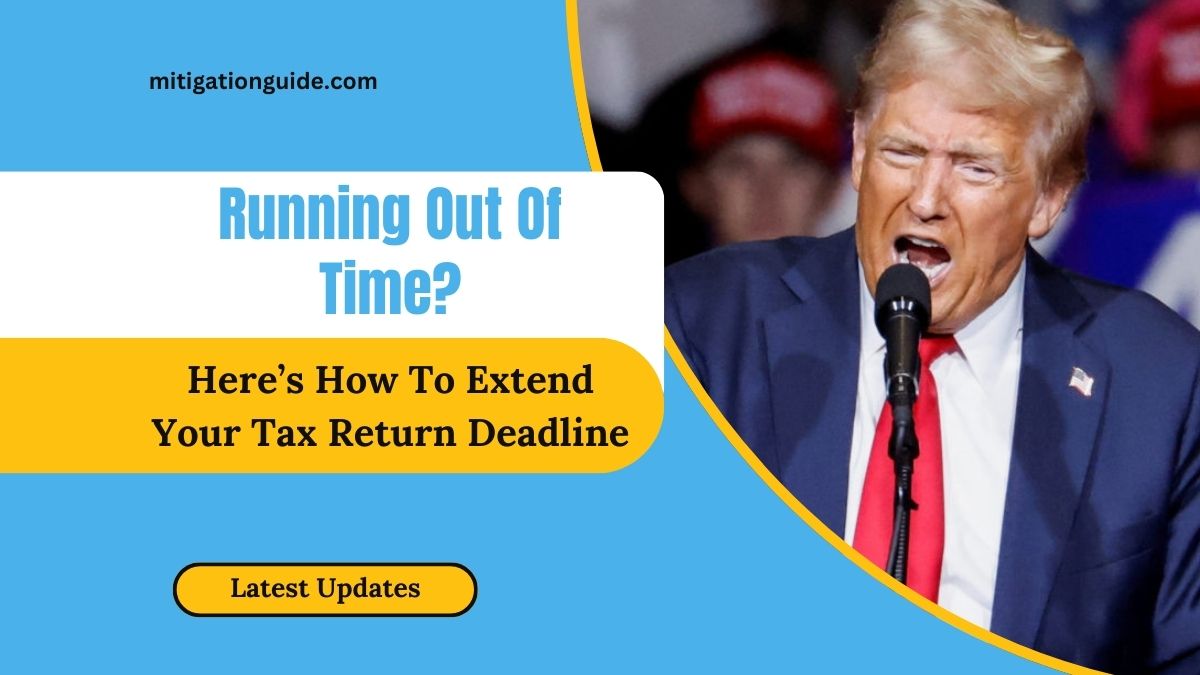As tax season in the United States enters its final phase, millions of taxpayers have already submitted their returns to the Internal Revenue Service (IRS).
But for those who are still scrambling to gather financial documents or facing unexpected delays, there’s no need to panic. The IRS offers a legal and straightforward solution—a tax filing extension.
Why You Might Need an Extension
The April 15, 2025, deadline can be overwhelming, especially for individuals experiencing recent financial changes or who haven’t yet received all the necessary documents. Filing late without any formal extension can result in costly penalties.
To avoid this, the IRS allows taxpayers to request a six-month extension—moving your filing deadline to October 15, 2025.
It’s important to note, however, that this extension only applies to filing your return, not paying your taxes. Any owed tax must still be paid by April 15, 2025 to avoid interest and penalties.
How to Request a Tax Extension
Requesting a tax filing extension is free, fast, and can be done in two ways:
| Method | Description |
|---|---|
| Online Filing | Submit Form 4868 electronically using IRS-approved tax software or a tax preparer. |
| Paper Submission | Mail Form 4868 to the IRS. Slower, and confirmation of receipt is not immediate. |
Filing online is highly recommended for speed and confirmation. Once approved, you’ll have until October 15, 2025, to file your return.
What Happens If You Don’t File or Request an Extension?
If you neither file your tax return nor request an extension by April 15, you may face significant penalties:
- Late Filing Penalty: 5% of the unpaid taxes per month (up to a 25% maximum).
- Late Payment Interest: Accrues from April 15 until the tax is paid in full.
If you can’t pay the full tax amount, the IRS offers solutions like installment payment plans to help you meet your obligations without falling into deeper financial strain.
Expecting a Refund? Here’s What You Should Know
If you’re due a tax refund, there is no penalty for late filing. However, you only have three years to claim your refund. Delaying beyond that period could result in permanently losing your money.
Quick Recap: Key Extension Facts
| Aspect | Details |
|---|---|
| Filing Deadline | April 15, 2025 |
| Extension Deadline | October 15, 2025 |
| How to Request | Form 4868 (online or paper) |
| Payment Due Date | April 15, 2025 |
| Penalty for Late Filing | 5% per month, up to 25% |
| Refund Claim Window | Within 3 years of original deadline |
Filing your tax return on time is essential to avoid penalties and protect your financial health. If you’re not ready by April 15, 2025, filing Form 4868 for a six-month extension is a smart and legal option.
Just remember—an extension to file is not an extension to pay. Be proactive, meet your payment obligations, and take advantage of the IRS’s available tools to reduce stress this tax season.
FAQs
Does the IRS extension give me more time to pay my taxes?
No, the extension only applies to filing your return. Any taxes owed must still be paid by April 15, 2025 to avoid interest and penalties.
How can I file for a tax extension with the IRS?
You can file Form 4868 electronically through IRS-approved tax software or a tax preparer, or submit it by mail.
Will I face penalties if I’m expecting a refund and file late?
No penalty applies if you’re due a refund. However, you must file within three years to claim your money.
